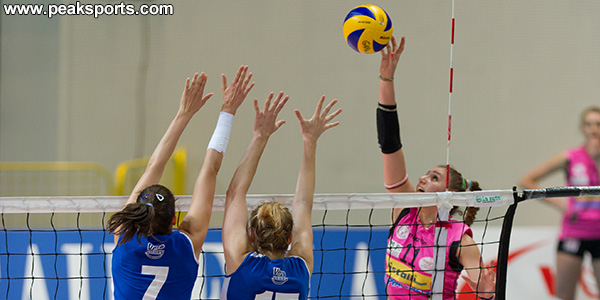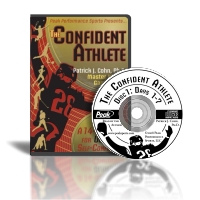
This article is republished with permission. The original article appears at Athletes Who Are Self-Critical.
How to Grow Your Confidence Without Excessive Self-Criticism
Are you happy with where you are with your game?
Most athletes would answer “no” because they want to achieve more.
After all, the goal of every athlete is to achieve as much of their athletic potential as possible.
Some athletes think the best way to improve is to never be satisfied with a performance.
These athletes engage in constant self-criticism to try to up their game.
This is a tricky area for many athletes to navigate.
Self-criticism rarely leads to self-improvement.
Yes, you want to learn from your failures, but self-criticism leads to lower confidence and less productivity.
A good case example of the self-criticism and self-improvement is Ivana Jeremic, who is in her third year on Arizona State University’s volleyball team.
The ASU squad is off to one of its best starts and much of the credit goes Jeremic who is one of the statistical leaders on the team.
Yet, Jeremic’s quest to uncover her potential and drive for self-improvement can be a bit excessive at times.
JEREMIC: “I am really self-critical. I always think I can do better. Even if I had an awesome night, I come out and think ‘I can do this better.’ I will never say I am doing good; I will always say I can do better.”
That statement makes sense to some degree. Why would any athlete settle for their current level of play?
If you want to be your best, shouldn’t you always try to be better?
There is one problem with the “good is never good enough” mindset.
This belief often underlies perfectionism where performance is either perfect or failure… And since perfection is impossible, the athlete always feels like they failed.
Perfectionism undermines your confidence because you might not accept credit for the things you do well.
The bad always outweighs the good parts of performance.
Self-criticism becomes a destructive habit that eventually blocks an athlete from her potential.
Self-criticism becomes the most damaging when it takes place in the middle of competition.
Self-criticism in the middle of a competition makes mistakes live on in an athlete’s mind and takes away their focus on the next play.
ASU volleyball head coach, Sanja Tomasevic, understands how the pursuit of perfection can be the greatest enemy, not just for Jeremic, but any athlete.
TOMASEVIC: “[Jeremic] is her biggest critic and that’s why it took her this long [to play as well as she is playing]. She is a really good player. She gets in her own head and when she starts criticizing herself, (and) she doesn’t know how to get out of it … You got to move on and stop beating yourself up.”
Excessive self-criticism will hold you back from stepping your game up to the next level.
To grow your confidence, you want to let go of striving for perfection and look to be at your best each and every game.
This “be-your-best” mindset encompasses both self-improvement and giving yourself credit for your successes.
With your confidence intact, you will be in the best position to improve and take your game to the next level.
Improvement Without Excessive Self-Criticism:
1. There is a time and place for everything. During a competition, you should focus on your game strategy to stay in the present moment.
Move forward after a mistake. Avoid judging your game moment to moment.
2. Use objective feedback rather than negative criticism. Being objective requires that you look at your measurable stats, and deciding what to emphasize during the next practice.
Be more objective and focus on improvement, not failures. Maintain a balance between improving your game and being kinder to yourself.
_______________________________________________________________________________
Confidence-Boosting Techniques! 
The Confident Athlete CD and workbook program is a 14-day plan for ultimate self-confidence. This program is ideal for any athlete or coach that wants to discover proven confidence-boosting techniques guaranteed to drastically build self-confidence and improve sports performance.